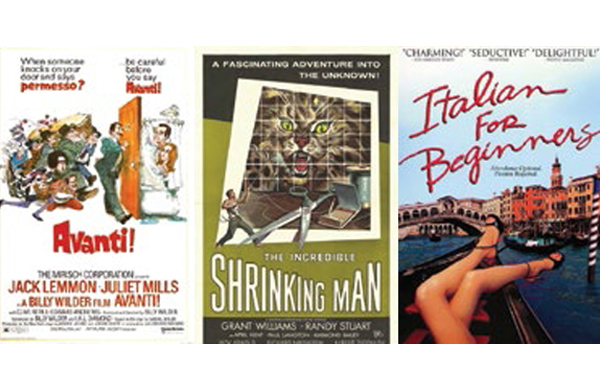Settle in and let these cinematic gems take you away.
Avanti! (1972)
The multi-Oscar-winning writer-director Billy Wilder had a storied career that ranged from the drama of Sunset Boulevard to the comedy of Some Like It Hot, but this 1972 romance was a complete box-office belly flop. It deserved better: Warm and leisurely, Avanti! is a lovely tale of transformation set in the Italian sun. Wilder blends sweet and sour in clever proportions, using stereotypes in order to upend them. Jack Lemmon plays a go-go American businessman forced to travel to small-town Italy to claim the body of his father, who was killed in a car accident along with a long-time mistress. He must also deal with the paramour’s daughter (Juliet Mills) and the maddening Italian tendency to appreciate life rather than timetables. Lemmon’s character begins the movie as a self-centered, sexist louse, but it’s funny how a few days of wine, music and romance can change a guy. As he did with the womanizing musicians in Some Like It Hot, Wilder pulls the rug out from under his protagonist and forces him to become something new — a delightful process to witness.
The Incredible Shrinking Man (1957)
The title may conjure up fond memories of late-show horror movies, and it should. But a grown-up look at this 1957 film might bring a surprise: Despite the crazy premise and the cheesy title, The Incredible Shrinking Man is a thoughtful and — in the end — downright philosophical look at nothing less than man’s place in the cosmos. Scott Carey (Grant Williams) is caught one day in a strange, glittery mist while boating with his wife. Months later, he finds himself inexplicably getting smaller. The more he shrinks, the more Scott is forced to question his ideas about life, masculinity, and what it means to be a “big man” in the world. Yes, there are spectacular special effects scenes with furniture and spiders that tower over tiny Scott, but there’s also director Jack Arnold’s addition to the original story by veteran fantasy writer Richard Matheson: a final soliloquy in which Scott accepts his role in the universe. “So close, the infinitesimal and the infinite — but, suddenly, I knew they were really two ends of the same concept.” A remarkable finish to an unusual movie.
Italian for Beginners (2000)
Before she transitioned to English-language films such as An Education, Danish director Lone Scherfig made this beguiling film about a night class in Copenhagen. A group of adults are studying Italian, a rather exotic choice given the otherwise drab circumstances of their neighborhood. At first these folks are at odds with each other, but the mood shifts as the story unfolds, and a series of running gags eases the transition — you might not believe a joke about a man repeatedly trying to get a haircut would be comedy gold, but it is. Scherfig’s use of the so-called “Dogme” style (real locations, handheld camera) pays off in a charming way: We feel as though we’ve casually stumbled across this group, whose humble lives grow in significance the more we get to know them.



